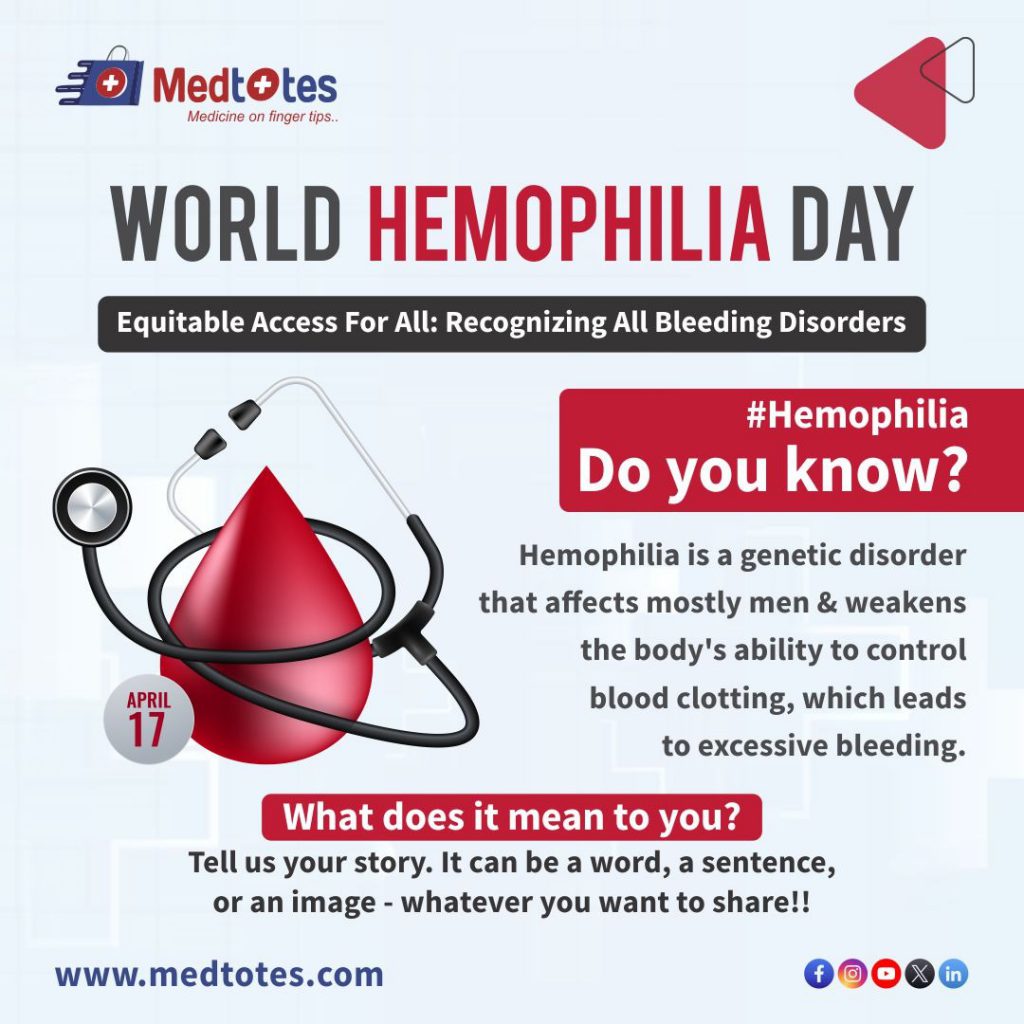I. Introduction
World Hemophilia Day is an annual event observed on April 17th to raise awareness about hemophilia and other bleeding disorders. It aims to educate the public about these conditions, advocate for better treatment and care, and support those living with hemophilia. The day highlights the challenges faced by individuals with hemophilia, such as limited access to treatment and the stigma associated with these conditions. By raising awareness, advocating for improved care, and showing support for those affected, it promotes a better understanding of hemophilia and the need for continued research and resources to enhance the standard of living for those dealing with these conditions. Raising awareness about hemophilia is crucial in breaking down barriers and misconceptions, fostering a more inclusive and supportive community, leading to earlier diagnosis and intervention, and ultimately improving outcomes and standards of living for those who suffer from hemophilia.

II. What is Hemophilia?
Hemophilia is a rare genetic bleeding disorder that affects blood clotting. It is primarily inherited and affects males, although females can also be carriers. It can cause spontaneous bleeding, especially into joints and muscles, leading to pain, swelling, and long-term damage. Treatment involves replacement therapy with clotting factors to prevent and control bleeding episodes. Early diagnosis and comprehensive care are crucial for managing hemophilia and preventing complications. Regular monitoring and management can help individuals lead normal, healthy lives. Other treatment options include physical therapy, medications, and avoiding activities that increase the risk of injury or bleeding. With proper care and adherence to treatment plans, individuals with hemophilia can live full and active lives.
III. Hemophilia Symptoms
- Excessive bleeding from cuts or injuries
- Frequent nosebleeds
- Easy bruising
- Swollen or painful joints, often from internal bleeding
- Blood in urine or stool
- Continuous bleeding after surgery or dental surgery
- Spontaneous bleeding, especially in muscles or joints
- Heavy blood loss from minor wounds or injuries
IV. Treatment Options
- Regular infusions of clotting factor concentrates
- Desmopressin to stimulate the release of clotting factors
- Antifibrinolytic medications to prevent the breakdown of blood clots
- Physical therapy to strengthen joints and muscles
- Preventing activities that may lead to injury or blood loss
- genetic counseling for family planning decisions.
V. Conclusion
In Conclusion. Hemophilia education can help individuals live healthier and more fulfilling lives. Supporting research and advocacy efforts can improve care quality and ensure everyone has access to proper treatment. World Hemophilia Day serves as a reminder of the ongoing challenges faced by those with hemophilia and a call to action to ensure they receive the necessary care and support to thrive.
Download our app: https://bit.ly/3tkQkFy
